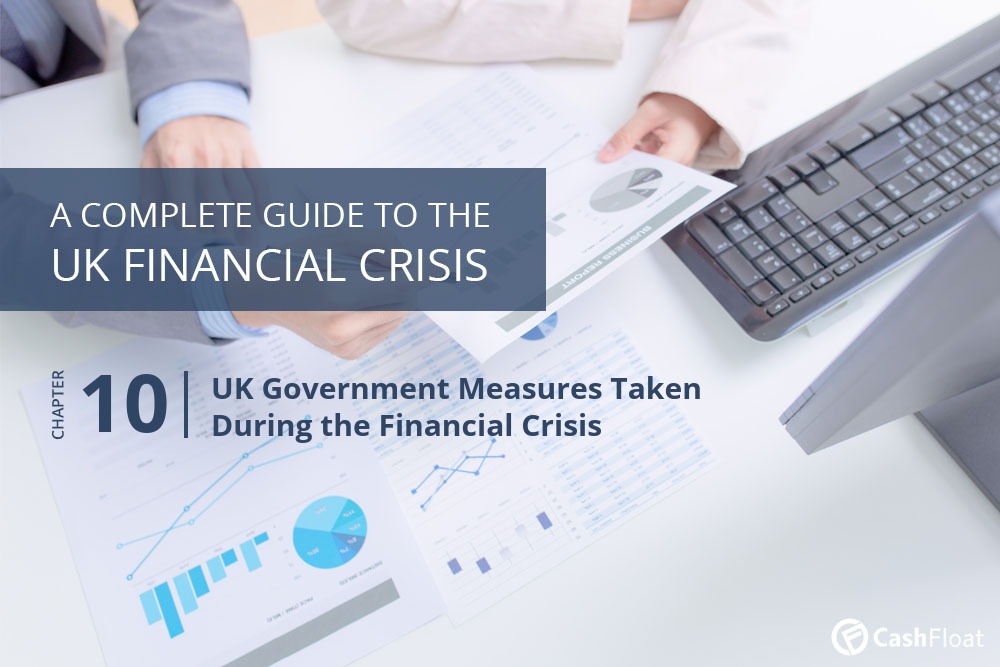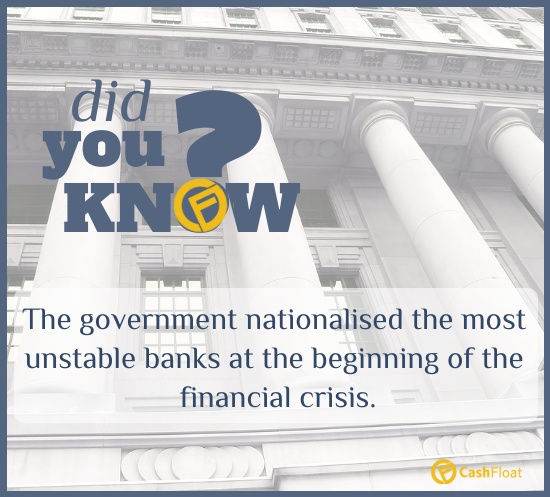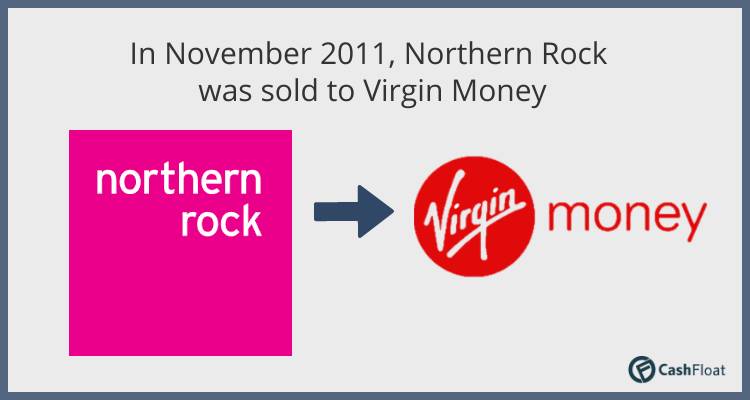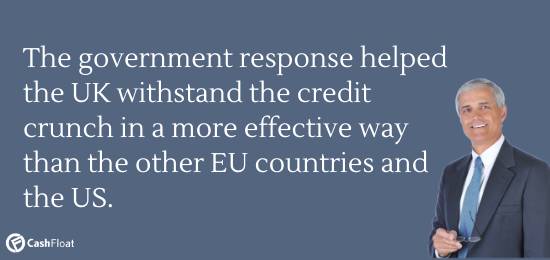How did the government react to the financial crisis? Did their measures help? Read on with Cashfloat to find out.

Story Highlights
- The government injected a large sum of money into the Financial Services Compensation Scheme.
- Northern Rock was sold to Virgin Money
The financial difficulties that had begun in 2007 developed into a full blown banking and economic crisis. It soon became clear that the government needed to interve quickly so the whole financial system would not collapse. The government took a four-pronged approach to handling the crisis:
- The first aim was to protect savers so that the panic that had erupted into a ‘bank run’ on Northern Rock was prevented from spreading.
- Secondly, they needed to maintain the liquidity of the banks so that bank to bank lending would not grind to a halt.
- The third objective was to keep the capital in banks at a level that meant they could not go into liquidation.
- The final objective was to ensure that banks continued to lend to borrowers without taking high risks.
With the knowledge that they were dealing with a global credit crisis and specifically a serious economic downturn in the UK, the government took action to bolster confidence in the market. They wanted to maintain banking liquidity to avoid a shortfall in repayments. It would also provide sufficient capital to prevent serious losses from deterioration in the stock markets and money markets.
Recovery Action of the Treasury
The Treasury started recapitalising banks by buying up shares and nationalising banks doomed to fail. In addition, they put a large sum of money into the Financial Services Compensation Scheme to assure savers they would not lose their money. They lent money directly to some insolvent banks, so customers did not lose the first £50,000 of their money. These banks included Icelandic companies such as Landsbanki and Heritable. A substantial amount of UK customers invested in these Icelandic banks due to the high interest rates. They then nationalised the most unstable banks including Northern Rock, RBS and Bradford and Bingley.

The BoE
The Bank of England took steps to increase the liquidity in banks. They swapped some of the dodgy mortgages that they held for Treasury bills. They designed a Credit Guarantee Scheme to restore the confidence of the markets. This scheme guaranteed certain kinds of unsecured debts. Finally, the Asset Protection Scheme was a programme open to all banks. The government would insure up to 90% of bank assets from losses so banks could continue responsible consumer and business lending. Ultimately, only RBS took advantage of the system.
The amount of government support for banks amounted to some £1,162 billion at the peak of the crisis. Banks received both direct and indirect support from the measures already mentioned. The RBS, Lloyds, Northern Rock and Bradford and Bingley were the main participants with several other insolvent companies also receiving funds.
After reaching a peak during 2008/2009 the government scaled back the level of support. Northern Rock was sold to Virgin Money, and Lloyds’ shares were sold.

Repayment of the Support
One of the main taxpayer concerns is whether or not the money invested in the banks going will ever be paid back. However, it is not yet fully apparent whether there will be a loss or a profit to the taxpayer. That will only be discernable once the government removes all the supportive measures and sells all the shares. The amount of income from investing in failing banks is significantly lower than the income expected from a normal investment. However, the government deemed this a better way forward than allowing a wholesale collapse of the financial sector of the UK. Therefore, it certainly looks like the government measures were justified as the alternative scenario would have been a disaster for the whole UK.
Government Response
The complex nature of the banking system that had evolved before the crisis hit made a recovery difficult. It meant that there had been a serious miscalculation by regulators about the risk and reward policy that was endemic throughout the UK banking system. The causes of the crisis are well documented. It is important to emphasise how the government response helped the UK withstand the credit crunch in a more effective way than the other EU countries and the US.
One of the initial government reactions was to request that Northern Rock reduced the size of its loan book. This was in contradiction to requests to other banks to continue lending to small companies and individuals. The major difference was the emphasis on only lending to less risky borrowers. The government handled the ‘bad book’ of mortgages at Northern Rock and other banks differently than ‘normal’ mortgages and new business. This was just one of many actions to implement bank reforms and effectively handle the crisis.


Conclusion – Government Measures
The UK government took a series of measures that would become the model for other countries to follow. They would help to reduce the impact of the global financial crisis on the UK economy. The government took further measures including interest rate management and quantitative easing. In addition, they put a fiscal stimulus in place to try to get the economy back into shape. The government placed conditions on the banks receiving public funds, as they wanted to ensure that there was no competitive edge for the banks they nationalised. The UK government’s response to the financial meltdown has proved to be effective, and we are on the road to recovery from the devastating credit crunch.



